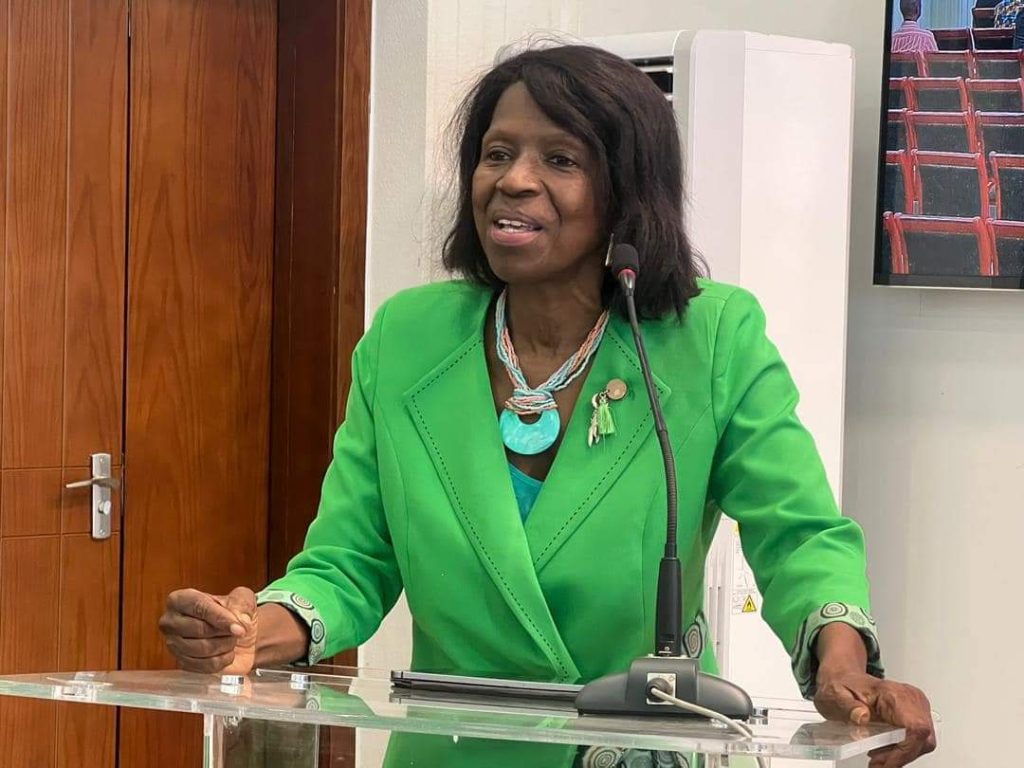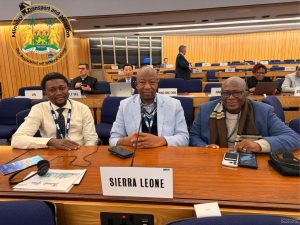MoPED Presents Draft HCD Strategy for National Review

On Tuesday, November 19, 2024, the Ministry of Planning and Economic Development (MoPED) hosted a key event at the Foreign Service Academy in Freetown to validate the Draft National Human Capital Development (HCD) Strategy. The event brought together a wide array of stakeholders, including development partners, representatives from Ministries, Departments, and Agencies (MDAs), and other key figures, marking a significant milestone in the government’s effort to institutionalize comprehensive mechanisms for Human Capital Development (HCD) in Sierra Leone.
This draft strategy, which builds upon the progress made since the establishment of the Human Capital Development Hub earlier in May 2024, is set to become a cornerstone of President Dr. Julius Maada Bio’s development agenda. It aims to provide a solid framework for enhancing coordination, improving data management, mobilizing resources, and advancing service delivery across critical sectors such as education, healthcare, agriculture, gender equality, social protection, and climate resilience.
The Minister of Planning and Economic Development, Ms. Kenyeh Barlay, emphasized that the HCD strategy is central to the government’s long-term vision for sustainable development. In her address, she stated, “This strategy is for the people of Sierra Leone. It is our roadmap to advancing education, healthcare, agriculture, and youth empowerment while addressing gender equality and climate resilience.”

Minister Barlay provided an overview of the significant achievements made under the government’s HCD program since 2018. Notable successes include:
- Education: The Free Quality Education initiative, which has led to improved enrollment, transition, and completion rates, and the achievement of gender parity in primary and junior secondary schools. Additional programs focused on radical inclusion and foundational learning have also made a positive impact.
- Healthcare: The government has increased healthcare funding, with the budget allocation rising from 6% to 11% between 2019 and 2023. New healthcare workers have been recruited, and new dialysis stations established, contributing to a reduction in maternal mortality and an increase in life expectancy.
Minister Barlay also highlighted the alignment of the HCD strategy with the Medium-Term National Development Plan (MTNDP) 2024-2030, which underscores key areas such as education, food security, gender equality, social protection, and youth empowerment. She stressed that the creation of a standalone National HCD Strategy was a vital step in operationalizing the MTNDP, ensuring that the goals of the plan are effectively implemented across government sectors.
The event saw contributions from various government and sectoral leaders. Professor Alpha Wurie, former Minister of Technical and Higher Education, lauded MoPED, Statistics Sierra Leone, and the National Monitoring and Evaluation Directorate for their continued collaboration. He called for greater investment in data collection to ensure evidence-based policymaking in education, healthcare, and other critical areas.
Dr. Abdul Jibril Njai, representing the Ministry of Health, highlighted the strides made in reducing child mortality, improving maternal health, and decentralizing healthcare services. He reiterated the Ministry’s commitment to partnering with relevant stakeholders to achieve the objectives of the HCD strategy.
Ibrahim Saffa, representing the Ministry of Technical and Higher Education, emphasized the need to expand and improve vocational and technical education to meet the growing demands of the job market. He called for stronger collaboration between MDAs to ensure that the HCD strategy is effectively implemented.
Mrs. Namisa K. Kramer, Director of Human Capital Development at the Presidential Delivery Unit, expressed her appreciation for the contributions of MoPED and other stakeholders in developing the strategy. She reaffirmed the government’s commitment to empowering Sierra Leone’s future generations, particularly the youth.
The Deputy Minister of Basic and Senior Secondary Education, Mrs. Emily Gogra, highlighted the continued success of the Free Quality Education program. She pointed out that the initiative has led to significant increases in school enrollment, especially among girls, and has helped reduce dropout rates through re-enrollment programs. Her ministry is also focused on further decentralizing education services to make them more accessible.
Desmond Pessima, the President’s Youth Adviser, underscored the importance of placing youth at the center of Sierra Leone’s development efforts. He reiterated the critical role of Human Capital Development in achieving national progress, calling for continued cooperation among all sectors.
In his presentation, Mr. Joseph Samah, Acting Director of Planning, Policy, and Research at MoPED, detailed the provisions of the draft strategy. He urged stakeholders to validate the document and provide constructive feedback to ensure its relevance and effectiveness.
The validation of the Draft National Human Capital Development Strategy marks a key step in the government’s commitment to investing in people and advancing sustainable socioeconomic transformation in Sierra Leone. The finalized strategy will guide future development efforts and is expected to play a pivotal role in the country’s growth in the coming years.





